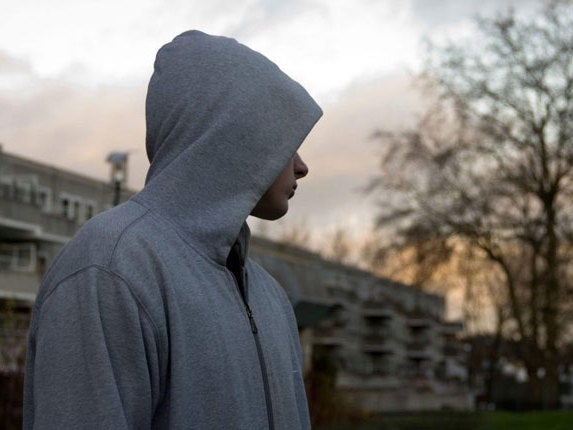Number of UK child slavery cases up by nearly 800% in two years, figures show
County lines drugs gangs preying on youngsters are contributing to surge, police say

Your support helps us to tell the story
From reproductive rights to climate change to Big Tech, The Independent is on the ground when the story is developing. Whether it's investigating the financials of Elon Musk's pro-Trump PAC or producing our latest documentary, 'The A Word', which shines a light on the American women fighting for reproductive rights, we know how important it is to parse out the facts from the messaging.
At such a critical moment in US history, we need reporters on the ground. Your donation allows us to keep sending journalists to speak to both sides of the story.
The Independent is trusted by Americans across the entire political spectrum. And unlike many other quality news outlets, we choose not to lock Americans out of our reporting and analysis with paywalls. We believe quality journalism should be available to everyone, paid for by those who can afford it.
Your support makes all the difference.Child slavery cases in the UK have surged by nearly 800 per cent in just two years, new figures show.
Data published in the Modern Slavery Police Transformation Programme's annual report show there were 475 police operations into child slavery in the UK last month, compared with 53 in April 2017.
One in three probes into modern slavery now concern children after an explosion in county lines drugs gangs preying on youngsters and exploiting them to distribute their product, the report states.
Past analysis shows that in more than 30 per cent cases involving children, the youngsters concerned had been previously reported as missing on one or more occasions.
National Police Chiefs’ Council (NPCC) lead for Modern Slavery, Chief Constable Shaun Sawyer, told The Independent he was increasingly concerned by levels of child exploitation that police forces are uncovering during their work.
He said the rise could be attributed in part to huge improvements in the identification of child slavery cases. Where before these youngsters would have often been criminalised, now they are being seen as victims, he said.
“I think in many cases we’re identifying what’s already there. And we’ve learned all too late and all too painfully," he added. "I think there were a lot of child victims that have gone on to be offenders.”
Iryna Pona, Policy and research manager at the Children’s Society, said she was "deeply concerned" that cuts to local services had meant these children were not being offered the help they so need.
The Home Office plans to cut specialised support for children who fall prey to county lines gangs.
“It is vital that the growing number of children identified in police modern slavery operations receive help to recover from the traumatic experiences of exploitation, to keep them safe and to ensure that they are seen and treated as victims and not criminals," Ms Pona added.
Overall, the number of police investigations involving modern slavery has more than doubled over the last year and has grown by more than 350 per cent since April 2017, according to the report.
UK police forces are currently leading more than 1,370 live investigations involving slavery, servitude, forced labour or human trafficking, with most of these cases involving offenders controlling and exploiting people for their own financial gain, it states.
In total, the investigations involve more than 2,200 potential victims and over 1,800 potential offenders, and around 35 per cent may involve children as victims.
British nationals were identified as making up the largest proportion of possible victims and suspects, with a 170 per cent increase in the numbers of potential British victims since April 2018. Romanian, Chinese and Vietnamese are the most common nationalities among the victims.
It comes as an independent review of the Modern Slavery Act found that laws set up to target perpetrators must be strengthened and that too few convictions were being handed down for the new offences prosecuted under the Act.
Crime, Safeguarding and Vulnerability Minister Victoria Atkins said: “There has been a real sea change in the police response to modern slavery over the last two years with greater awareness and many more operations across the country. There is real sense now that modern slavery and exploitation is a priority for policing and that there’s a willingness to lift the stone and commit to tackling this crime. The Police Transformation Programme has been a cornerstone of this change.
“The programme has already helped to deliver improvements not just in policing and law enforcement, but across the system more broadly . This is testament to the way the activities within the programme were designed to support interventions that would make the biggest difference.”
Join our commenting forum
Join thought-provoking conversations, follow other Independent readers and see their replies
Comments